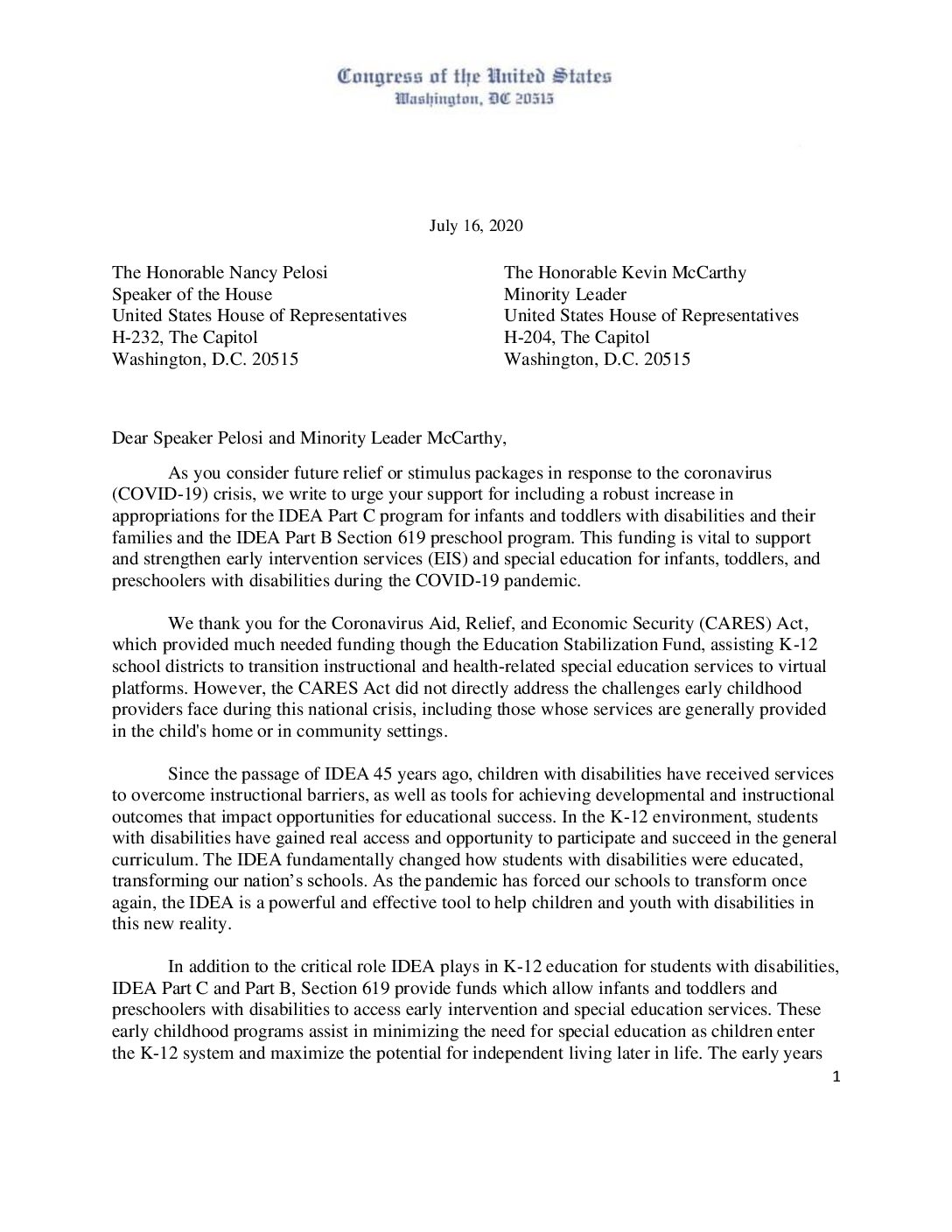Lawmakers Urge Increased Funding for IDEA Early Intervention Services

Recently, members of Congress from both sides of the aisle sent a letter to House leadership encouraging them to include in any COVID-19 relief or stimulus legislation a robust increase in funding for two programs within the Individuals with Disabilities Education Act (IDEA) designed to serve young children with disabilities: IDEA Part C, which authorizes federal funding for early intervention services (EIS) to infants and toddlers with disabilities ages birth to three years; and IDEA Part B, Section 619, which authorizes supplementary grants to states for preschool programs serving children with disabilities ages three through five.
EIS for infants and toddlers target disabilities or delays in physical, cognitive, communications, social or emotional, or adaptive development at the time when those services are most effective in helping the child successfully move to preschool. Preschool special education services offer important opportunities for young children to learn and grow and to enhance developmental outcomes making it more likely they can succeed when they enter school. In this way, the letter emphasizes the essential nature of these programs in minimizing the need for special education as children enter the K-12 system and maximizing the potential for independent living later in life, ultimately resulting in cost savings.
The letter notes, however, that the coronavirus has resulted in a lack of direct interaction with pediatricians and other providers, impacting the identification and referral of children who need IDEA services. Additionally, the shift to virtual services has radically altered the very basics of early intervention and preschool special education, increasing the reliance on virtual platforms and requiring far greater parent or guardian involvement. This shift also brings additional unexpected costs and has impacted sources of funding like Medicaid that were available for in person services have had to be renegotiated to be used for virtual services.
While the CARES Act included funding for preschools and K-12, the significant and immediate needs for schools as a whole decreased the likelihood of these funds being used for special education, and because only ten states’ education agencies oversee EIS, the majority of states received no assistance at all for Part C. Further, the bill did not directly address the challenges early childhood providers face in offering these services during a pandemic, including those whose services are generally provided in the child’s home or in community settings. The letter concludes saying additional funds are critical to ensure that eligible infants, toddlers, and preschoolers with, and at risk for, disabilities receive the services they need to successfully meet their outcomes.
Even before the pandemic, bipartisan legislation called for increased appropriations for IDEA Part C, and Part B, Sec. 619 to levels not seen in the last twenty years, during which time the number of students requiring services has increased at a rate faster than the funding the programs are receiving. More recently, members have included increased EIS funding in COVID-19 relief legislation, including the Supporting Children with Disabilities During COVID-19 Act and the Coronavirus Child Care and Education Relief Act.
The full text of the letter appears below.
Subscribe to FFYF First Look
Every morning, FFYF reports on the latest child care & early learning news from across the country. Subscribe and take 5 minutes to know what's happening in early childhood education.




